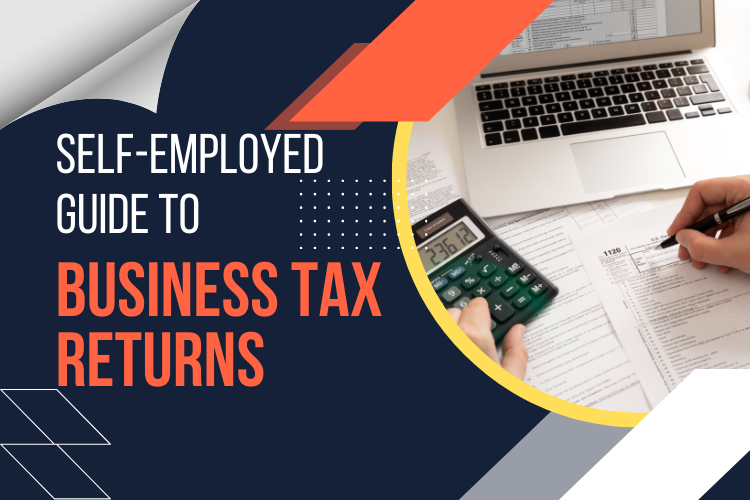
The Self-Employed Guide to Business Tax Returns: What You Need to Know
Navigating the complexities of tax season can be daunting for self-employed individuals. Whether you are a sole proprietor or the owner of a single-member LLC, you need to know your tax obligations if you want to stay in compliance and get the most out of your deductions.
This guide provides essential information for self-employed business owners preparing to file their business tax returns.
Tax Obligations for Sole Proprietors and Single-Member LLCs
You are a “disregarded entity” for tax purposes if you are a sole proprietor or a single-member LLC owner. You report your business income on your tax return using Schedule C (Form 1040). This form is used to report your business’s income and expenses.

Critical Considerations for Filing Your Business Taxes:
- Self-Employment Tax: Besides income tax, self-employed individuals must pay self-employment tax, which covers Social Security and Medicare contributions. The self-employment tax rate is 15.3%, which includes 12.4% for Social Security and 2.9% for Medicare.
- Estimated Tax Payments: Since taxes aren’t withheld from your earnings as a self-employed individual, you may need to make estimated tax payments quarterly to avoid penalties. Use Form 1040-ES to calculate and pay these taxes.
- Deductible Business Expenses: Self-employed individuals can deduct ordinary and necessary business expenses. These can include home office expenses, supplies, equipment, travel, and vehicle use for business purposes.
- Home Office Deduction: If you use part of your home exclusively for business, you may be eligible for the home office deduction. You can calculate this deduction using the simplified option (a standard deduction based on the square footage of your office space) or the regular method (based on actual expenses).
- Health Insurance Deduction: If you pay for your health insurance, you can deduct premiums for yourself, your spouse, and dependents.
- Retirement Plan Contributions: Contributions to a self-employed retirement plan, such as a SEP IRA or a Solo 401(k), can be deductible, reducing your taxable income.
- Recordkeeping: Maintain meticulous records of all income and expenses, receipts, and documentation for deductions. Good recordkeeping simplifies the tax filing process and supports your deductions if audited.
Filing Deadlines and Extensions:

The tax filing deadline for self-employed individuals is typically April 15. For those needing more time to prepare their tax returns, Form 4868 lets you request an extra month, which gives you until October 15.
However, this extension does not give you more time to pay taxes that you still owe. You should still calculate your taxes and pay them by the original due date to avoid penalties.
Utilizing Tax Professional:

You could hire a tax expert who knows about self-employment tax issues to ensure your return is correct and you get all the tax deductions you are entitled to.
In addition, the professional can determine if you are eligible to be converted to an S-Corporation which could reduce the amount of self-employment tax you would pay.
Conclusion
Filing business tax returns as a self-employed individual involves unique considerations. Understanding your tax obligations, keeping your records in order, and using all your allowable deductions are essential to correctly filing your taxes.
Whether you talk to a tax expert, being proactive and well-informed will help you feel confident during tax season. Remember to ask a tax professional whether converting to an S-Corporation would benefit your business and you.
